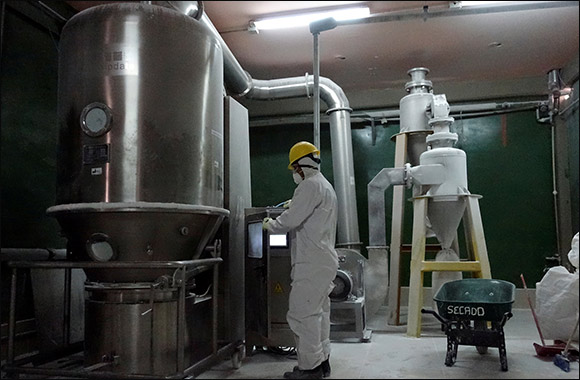• Ma'aden and Ivanhoe Electric to explore for minerals in Arabian Shield
• Saudi Arabia wants lithium to fuel its electric vehicle ambitions
• Ma'aden and Saudi PIF have a fund of up to $3bn for overseas mining
26 July, 2023: Saudi state mining giant Ma’aden and US-based Ivanhoe Electric have closed a deal to investigate 48,500 sq km of under-explored lands in the Arabian Shield for “critical minerals” that are key to powering the global energy transition.
Surveys could begin as soon as September in the new joint venture, which is worth nearly $130 million, reports AGBI.
The Saudi region – roughly the size of Switzerland – is understood to be rich potential for critical minerals such as copper, nickel, gold, silver and possibly lithium.
Lithium is of great interest to Saudi Arabia as it is a key component of EV batteries. The kingdom wants to develop a significant industry around electric vehicles and to produce 500,000 electric cars a year by 2030.
Last month, Australian startup European Lithium and Saudi Arabia’s Obeikan Investment Group announced a joint venture to build and operate a lithium hydroxide refinery in Saudi Arabia.
A long-term supply agreement has also been signed with BMW.
The plan builds on an agreement signed in 2021 with EV Metals Groups to build a battery chemicals complex in Yanbu Industrial City in Al Madinah.
Refinery ambitions
Ionut Lazar, principal consultant at CRU Consulting, told AGBI that Saudi Arabia could play a big part as a primary processor.
He said the kingdom is considering development of a large-scale copper smelter, plus smelters or refineries for silicon, aluminium and nickel.
“The kingdom continues to offer attractive power tariffs and financial incentives to create industrial clusters,” Lazar explained. “These advantages have attracted market-leading players to the region.”
Experts believe that while Saudi Arabia has enough mined copper to justify smelting facilities, the prospects for critical mineral refining projects that would rely on imported material are less certain.
Christopher Ecclestone, strategist and principal at Hallgarten & Company, said Saudi Arabia might have the funds to become a player but not yet the expertise.
“They need to put their money where their mouth is and quickly,” he said, referring to a fund set up by Ma’aden and the Public Investment Fund earlier this year to invest in mining assets overseas.
Initially sized at $50 million, the fund could grow to over $3 billion, the two parties said in January.
A quickly growing market
Last week, the International Energy Agency (IEA) said the market for minerals that help power electric vehicles, wind turbines, solar panels and other technologies key to the clean energy transition has doubled in size over the past five years.
It said record deployment of clean energy technologies is propelling huge demand for minerals such as lithium, cobalt and nickel.
From 2017 to 2022, demand for lithium has trebled, while cobalt (70 percent) and nickel (40 percent) have also gained. The market for energy transition minerals reached $320 billion in 2022.
Saudi Arabia sees mining as central to its Vision 2030 strategy to diversify its economy outside of fossil fuels. The kingdom values its mineral wealth at more than $1.3 trillion.
Luxembourg’s Eurasian Resources Group is investing an initial $50 million to large-scale, early-stage exploration for battery transition minerals in the Ad Dawidimi region.
CEO Benedikt Sobotka told AGBI: “If we are to meet the increasing demand for secure, sustainable and responsible mining, we must first invest in territories that have been previously overlooked and under-explored – that’s why ERG made a significant investment into Saudi Arabia.”
He added: “The potential for establishing state-of-the-art processing facilities for critical battery metals is extremely important. Such effort would align with the kingdom’s comprehensive industrial development strategy and help bridge the gap — improving sustainable access across the sector.”
To date, the production of critical minerals is highly concentrated geographically, raising concerns about security of supplies.
The Democratic Republic of Congo supplies 70 percent of cobalt and Indonesia has 40 percent of nickel. Australia accounts for 55 percent of lithium mining and Chile for 25 percent, according to the IEA.
Processing of these minerals is also highly concentrated. China, for example, is responsible for refining 90 percent of rare earth elements and 60-70 percent of lithium and cobalt.



